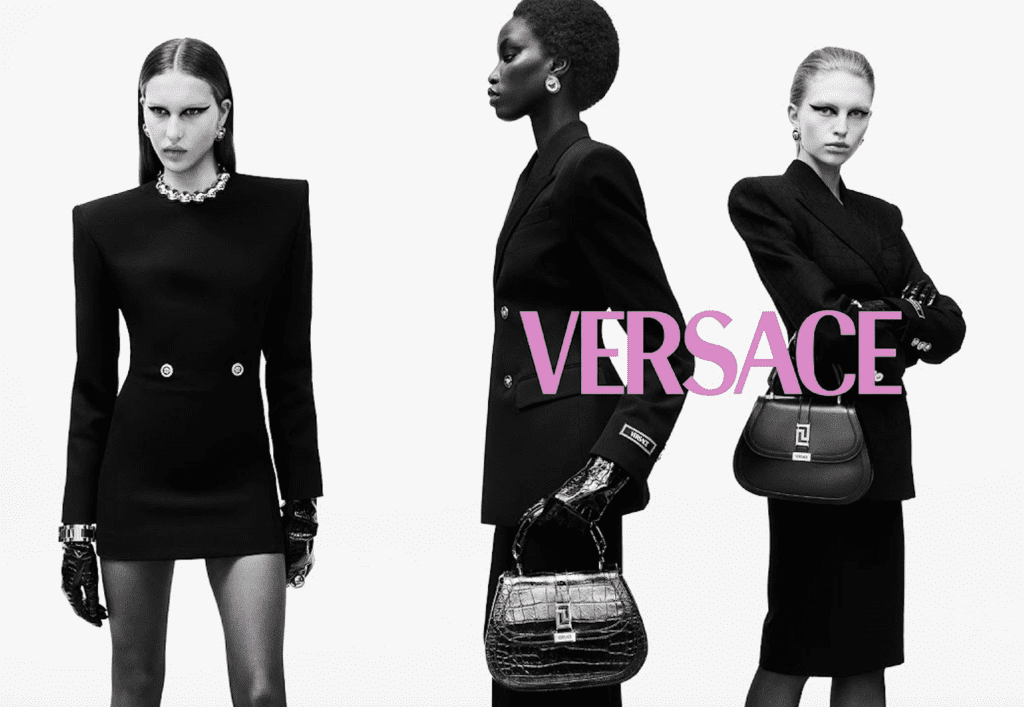The scope of new Trump administration tariffs on European Union goods has been “ reduced considerably from a $25 billion list floated by Washington this year,” according to Reuters, enabling things like personal luxury goods – from French fashion to Italian leather goods – to avoid a price hike imposed by import duties. As of now, the tariffs will be limited to a respective 10 and 25 percent tax on new airplanes, and agricultural and industrial products coming from the EU.
Apparel is not completely shielded from the new tariffs, though. Falling under the umbrella of “agricultural and industrial products,” which will be subject to a 25 percent tax beginning on October 18, are “wool and cashmere sweaters, pullovers, sweatshirts, [and] waistcoats,” “fine wool suits,” and “women’s nightwear” of UK origin, according to the Office of the U.S. Trade Representative
Unlike the ongoing U.S.-China trade war, which has seen the Trump administration impose $550 billion in tariffs on increasingly consumer-facing products, including apparel, accessories, cellphones, and other electronics, in response to China’s widespread “theft of U.S. intellectual property” by way of forced data transfers and widespread infringement, the U.S.-EU tariffs stem from a 15-year dispute between the U.S. and the 28 member bloc over aircraft subsidies.
The U.S. government has long alleged that Chicago-headquartered aerospace corporation Boeing has lost billions of dollars in revenue because EU states have provided billions of dollars in aid to European aircraft manufacturer Airbus in violation of World Trade Organization (“WTO”) rules. The Geneva-based intergovernmental organization explicitly prohibits its 164 member states from “distorting international trade” by dealing in subsidies that “have an adverse effect … on countries’ trade.”
Following from World Trade Organization rulings in August 2010 and in May 2011, which found that Airbus had received improper government subsidies through loans with below market rates from the EU and four of its member States, Germany, France, the UK, and Spain, a 3-arbitrator panel for the WTO determined on October 2 that the U.S. may impose as much as $7.5 billion in tariffs on EU goods annually in an effort “to counteract years of European loans and illegal subsidies to Airbus,” per NPR.
The Office of the U.S. Trade Representative called the $7.5 billion arbitration award “by far the largest in World Trade Organization history,” and one that might be subject to change if the U.S. and the EU come to a settlement before the WTO’s Dispute Settlement Body formally adopts the decision on October 14. However, as noted by the Financial Times, the U.S. and the EU “so far they have not engaged in serious negotiations,” and in fact, “both the US and the EU have blamed each other for the failure to avoid tariffs.”
According to Reuters, “Shares in European luxury goods companies, including British fashion brand Burberry … rose after [it was revealed that] the tariffs will exclude leather goods.” Burberry and other British brands will still be on the hook, however, for certain woolen and cashmere products.
The same goes for Louis Vuitton and Dior’s parent, LVMH, whose stock rebounded after an initial fall in connection with the proposed tariffs in early October. Gucci owner Kering ticked up as much as 1.7 percent, and Hermes by 1.4 percent in European trading on October 3 as the tariff-prone products list was published by the U.S. Trade Representative.











